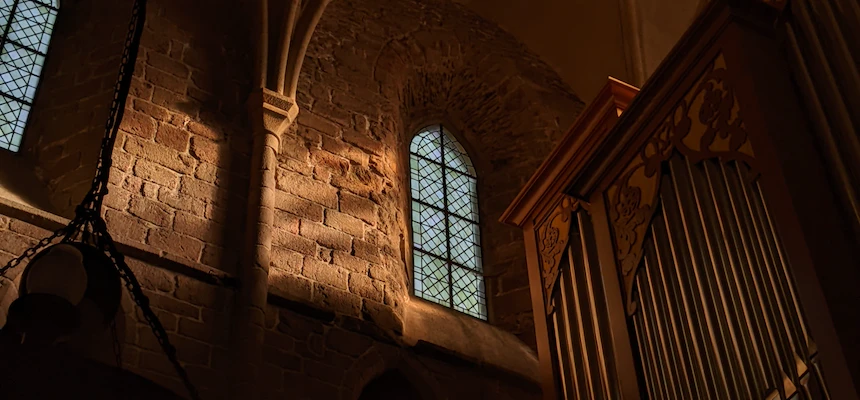
One of the oldest popes, Lucius was a political man as well as a negotiator. Lucius was born around 1097, making him 84 when he ascended to the chair of Peter. Born Ubaldo Allucingoli, he was likely the son of Orlando, a member of a prominent Lucca family.
We know little of Ubaldo’s early life. He may have been a Cistercian monk. He was first noticed by the Curia when Pope Innocent II named him a cardinal-deacon of San Adriano in late 1138. Only three years later, Pope Innocent raised Ubaldo to cardinal-priest of Santa Prassede, where he remained until 1158. During that time, he was also a papal legate to France.
In early 1158, Pope Adrian IV promoted Ubaldo to cardinal-bishop of Ostia, where he remained until his papal election 23 years later. During that time, the cardinal was a legate to Sicily and became the dean of cardinals during the papacy of Pope Alexander III. He had the opportunity to take part in the negotiations for the Treaty of Venice in 1177, after the defeat of Emperor Frederi.
On August 30 1181, Pope Alexander III died after many years on the throne. The cardinals, many of whom were in Velletri to witness the death of the old pope, immediately voted Ubaldo the new pope. He took the name Lucius III at his consecration six days later.
The Papacy
Although Pope Alexander spent much of his time in exile, the Romans, at first, allowed Lucius access to the city. Their welcome did not last. Lucius denied the citizens the benefits and gifts that had been offered in the past. By November, Lucius had to leave. His exile lasted his whole papacy. First, he lived in Velletri, then Amagni, south of Rome, and, finally, Verona, in the foothills of the Alps.
There were several problems Pope Lucius had to address. King William of Scotland had argued with Pope Alexander regarding the See of St. Andrew. Alexander had placed an interdict on most of the country to punish the king. After significant negotiations, Pope Lucius lifted all the censures made by his predecessor, raised William’s chaplain, Hugh, to the See of St. Andrew and gave John Scotus the bishopric of Dunkeld, which he famously held for a long time.
The ongoing dispute regarding Countess Matilda’s land had never ended. This exacerbated the disagreeable relationship between the emperor and the pope. The land was in central Italy. Holy Roman Emperor Frederick Barbarossa wanted it. So did some of her cousins, nobles in their own right. Matilda had planned to leave it to the Church. The emperor proposed the Curia renounce its claim in exchange for a 20% cut of the income from the property, 10% for the pope and 10% for the cardinals. Lucius would not agree in 1182, 1183 or a personal conversation with the emperor in 1184.
Meanwhile, a number of heretical groups, including the Cathars and the Waldensians, were making their voices heard in Western Europe. Persuading them to cease did not work. Lucius decided on a political response. In his pronouncement, “Ad abolendam”, he made it clear that all nobles were to join the struggle against heresy. They had to join or be excommunicated and their territories placed under interdict. The nobles had no choice. At the same time, he sent clergy to southern France to root out the heretics.
Emperor Frederick wished to regulate the German episcopal elections sponsored by the German anti-popes of a few years before. Lucius said no. The emperor wanted to see his son, Henry of Hohenstaufen, crowned while Frederick was still alive. Lucius insisted that two emperors at a time was incorrect. On top of that, the emperor wanted his son, Henry, to marry the daughter of the previous king of Sicily. Lucius suspected that was a plan for his enemies to surround him. He denied the request. The breach between the pope and the German empire widened.
In November of 1184, the elderly pope called a synod at Verona. There, he condemned heretics and their abettors. This was the first step towards the Inquisition, which came fifty years later. He also prevented bishops from ruling over Cistercian houses, showing favor to that order. There was preparation for a third crusade, as requested by King Baldwin of Jerusalem.
Pope Lucius III died 25 November 1185, a very old man, still in exile. He is buried at the cathedral of Verona.

Recent Comments